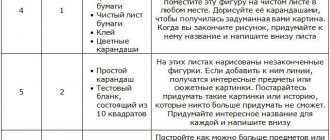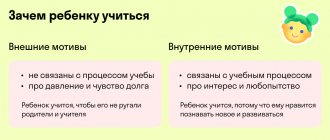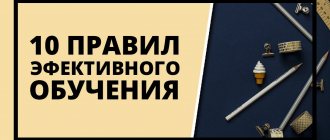Take notes by hand
Lecture notes on a laptop are more detailed and accurate, and this may seem to help you remember them faster. However, it is not. To speed up the learning process, write everything down the old proven way - by hand. Research has shown The Pen Is Mightier Than the Keyboard: Advantages of Longhand Over Laptop Note Taking that people who prefer computers and gadgets for note-taking process and retain information worse than those who use paper and pen.
Although writing by hand can be a long and tedious task, it in itself promotes better understanding and retention of material. And paraphrasing information in your own words helps to retain it in memory longer.
Study, sleep and study again
Recently, the journal Psychological Science published the results of an experiment conducted in France. In it, the subjects were divided into two groups and given 16 words each translated from Swahili into French. For both groups, classes were divided into two sessions.
The first group studied in the morning and evening, and the second took one lesson in the evening, then slept and received a second lesson in the morning. During the tests, it became known that participants who slept between classes recalled about 10 words out of 16, and those who did not sleep - about 7.5.
Psychologist Stephanie Mazza from the University of Lyon writes: “Our results show that interweaving sleep with study sessions significantly accelerates learning, promotes better and longer retention, and reduces the time it takes to absorb information. Previous studies have shown that sleep is one of the best aids to learning. And now you can see that it’s even better if they actually walk side by side.”
Improve your note-taking skills
The better your notes, the faster you will learn. The ability to take detailed and accurate notes will help you remember the main idea and gain a deeper understanding of the topic. So before you start a new topic, make sure you are familiar with the different note-taking strategies. For example, the Cornell method, which teaches you how to write easy-to-understand short resumes.
Whatever method you use, there are a few basic rules for keeping records:
- process what you hear or read and write it down in your own words;
- leave a few blank lines between main ideas so you can return to them later and add new information;
- develop your own system of abbreviations and special characters to save time;
- write in separate phrases rather than whole sentences;
- learn to highlight the essentials and discard the unimportant.
Teach others
This method is convenient if there is someone to whom you can tell about the information received. If there is no such person, then you can try to tell the material to yourself. The effectiveness of this method has been proven by scientists from Washington University in St. Louis. By sharing new information with another person, you begin to structure your material. This way, you remember new information better.
Use the spaced repetition method
This technique involves distributing several sessions on the same topic over a period of time. In contrast to long and persistent memorization, individual short exercises make the process more meaningful.
Always take detailed notes of the lecture and its discussions. Immediately after this, take a few minutes to review the notes you took and make any clarifying additions or changes. Don't spend a lot of time on this, just go through the notes a couple of times after each lesson. Gradually increase the intervals between repetitions from once a day to three times a week.
Dividing the learning process over time is very effective because thanks to such small activities we get less tired and stay motivated longer.
Learn in short bursts
Experts at the Louisiana Academic Success Center suggest devoting 30-50 minutes to learning new material. Graduate teaching assistant Ellen Dunn says classes shorter than 30 minutes or longer than 50 minutes are ineffective. In the first case, the brain does not reach peak performance, and in the second, it receives too much information. Work for 30-50 minutes and then take a break of 5-10 minutes.
“Short, frequent sessions are more effective than long, infrequent sessions,” agrees Neil Starr, course mentor at Western Governors University. It is a not-for-profit university where students, on average, complete a bachelor's degree in 2.5 years.
Don't forget about sleep
Imagine: tomorrow you have a big project or an important presentation, but you are not ready. Most people will stay up very late trying to learn everything. Of course, even if you're exhausted the next day, your hard work will pay off. But still, for our brain, this approach to studying material is not the most effective.
Research has proven Memory for Semantically Related and Unrelated Declarative Information: The Benefit of Sleep, the Cost of Wake that there is a strong connection between sleep and learning. It is extremely important in the memorization process. New information is consolidated in memory during the deep sleep phase; for this you need to go to bed within 12 hours after learning it. Students who study hard, but also take plenty of rest, not only do better academically, but also simply feel happier.
Increased Productivity
Congratulations! The process has been established and studies are in full swing. There are a few more tricks that you should definitely know about.
Master speed reading techniques
Speed reading is gaining more and more popularity every day. The flow of information that hits a person today can easily sweep him off his feet. Classical methods of assimilation of information no longer cope with it.
To keep up with the times, you need to learn to isolate the main thing in an endless string of symbols and competently structure the data in your head. I will share with you some tips that will help you increase your reading speed several times.
- Stop speaking the text while reading
This slows down the process significantly. To quiet your inner voice, count in your head while you read a book, or beat out a rhythm with your hand on the table. At first it will be difficult for you to understand the text, but then you will get used to it.
- Don't go back to what you read
Scientists have found that while reading, a person makes reciprocal movements with his eyes. They can be either involuntary or conscious. It happens that it seems to us that we did not remember something, and we have to return to the piece we read. A simple plastic card or business card will help you overcome this habit. Move it through the text following your gaze, covering the already read fragments.
- Familiarize yourself with the text before you start reading
When we have a general idea about something, it is easier for us to work with it. Before you start reading the text, review it in its entirety. Pay attention to the volume, the presence of graphic elements, read a couple of paragraphs to become familiar with the presentation style. A map of the text will form in your head, and it will be easier for you to assimilate new information.
- Train your peripheral vision
A person's field of vision is much wider than we used to think. In order to be able to use it 100%, you need to practice a lot. For this purpose, Schulte tables, wedge-shaped tables, and special techniques for working with text are used. All of them are in our article about what speed reading is and how to master it. Check it out!
Play sports
What does physical activity have to do with learning? The most immediate thing. During sports, blood circulation improves, cells are saturated with oxygen, and the brain begins to work more actively.
Therefore, I advise you to precede each training session with light training: jogging, cycling, swimming, skiing.
Drink water during exercise
Scientists have found that even slight dehydration reduces the quality of cognitive function. Attention is scattered, memory and thinking deteriorate. So keep a bottle of water near your work area and drink a little regularly.
Important! You need to drink water. Tea, coffee, juice, soda are not suitable.
Teach others
Another technique that will help you improve your learning efficiency is called “Teach while learning.” This means that you should try to impart knowledge on a new topic as soon as you have it. You can involve any interested person.
By trying yourself as a teacher, you will be able to identify problems in mastering the material. What you cannot explain properly requires closer attention and practice.
Take notes
The more senses are involved in assimilation of information, the better. By taking notes on classes, you connect a tactile analyzer to your training. Now not only visual and auditory memory, but also muscle memory will work on mastering knowledge.
In addition, note-taking teaches you to filter information, highlight the main thing and place emphasis correctly. And the notes themselves serve as a kind of map, with the help of which it will be easier for you to navigate a large amount of information.
Answer questions
In school textbooks, each paragraph is accompanied by a list of questions. And this is not without reason. According to scientific research, by answering questions immediately after learning theoretical information, we help it fit into our memory correctly.
From this point of view, answering questions is a much more effective method than re-reading the text.
Repeat correctly
At the end of the century before last, the German psychologist Hermann Ebbinghaus showed the world his famous forgetting curve. It can be used to track how our memory works. The graph shows that an hour after learning new information, only 43% of its original volume remains in the head.
Then the process of forgetting continues, although not so rapidly. As a result, after a month, about 20% of the acquired knowledge remains in your head. Repetition helps slow down the process and cheat the forgetting curve.
For the first time, it is best to repeat the material you have covered no later than an hour after mastering it. Skim through the text, answer the questions, and note the key points in your head.
Then you need to return to it a day later and try to reproduce it in your head. Those passages that you cannot remember can be re-read.
The next repetition should be after 2-3 weeks, and then after 3 months. If by this time you have already managed to introduce new knowledge into the work process and are actively using it, then you can do without repetition.
Use knowledge immediately
It is very important to start applying the acquired knowledge in practice as soon as possible. Otherwise, the brain will classify them as unnecessary and happily forget them. Remember how schooling was structured. First you take a theory lesson and then do practical exercises. Independent learning should be built in the same way.
I'll tell you a story about my dad. Being already an adult and an accomplished man, he decided to study jurisprudence. Every evening after work, he studied the Civil Code, analyzed various cases from legal practice, and studied court decisions.
To make the learning process go faster, he came up with a simply brilliant thing. I placed an ad in the newspaper that I was giving free legal advice over the phone. The calls started. Dad delved deeply into all cases, giving detailed comments and recommendations. In the most difficult situations, when he could not give an answer right away, dad asked to call back in a few days. And he himself began to look for the answer.
For about six months, the telephone in our apartment was ringing off the hook with calls in the evenings. During this time, dad achieved great skill in his new hobby, won several court cases and even received an invitation to work in a law firm. And along the way, he also helped several hundred people solve their problems.
By the way, did you know that any skill can be mastered in just 24 hours? Don't believe me? Then take a look at our article about the Kaufman method.
Change your approach to learning
When learning a skill, don't repeat the same thing over and over again. Making small changes in your practice sessions will help you improve much faster. The effectiveness of this method was proven by the study Motor Skills Are Strengthened through Reconsolidation, which studied the process of developing motor skills on a special simulator. The results of the experiment participants who were asked to change the method of training after training turned out to be better than those who continued to repeat the original task.
However, this method only works if changes in the learning process are small. For example, if you want to improve your tennis game, simply try a different size or weight of racket.
How interested are you in the outcome?
A huge influence on the result is how interested a person is in acquiring new knowledge, which became an incentive for him to learn. Information, like food, is absorbed much better when it is absorbed with appetite, when the intrinsic value of learning is obvious.
A.L.: Different people are guided by different motives. There is “motivation from”. For example, out of fear of receiving a fine or reprimand from management. And "motivation to". When a person does something because he wants to grow in position or simply because he likes it. We must understand what motivates the person to whom we assign tasks.
D.L.: There is external motivation when a person goes to study because he was sent. This is bad motivation. He will study poorly. But when he himself comes and asks you to teach something or send you to courses to learn new skills, this is good motivation. And then, during classes or studying literature on the topic, he has an inner desire to gain this knowledge, which means the result will be much better.
A.L.: It is worth considering one more feature of the human psyche. Sometimes the desire to continue disappears. After all, you have to find the strength in yourself, find time and study. What is of great importance here is why all this is being done. If the goal really inspires, then the strength will be found. A person becomes very inspired when he begins to see the first results. Then there is drive, excitement, a desire to finish what you started. The question is how to support yourself until these results appear. We need some intermediate joys.
Positive reinforcement for a subordinate can be praise, a compliment that he learned to do something that no one could do before, or optimized processes. For a child who is making first progress, for example, in playing the piano, this could be verbal praise, a trip to the zoo together, or some kind of “tasty joy.” You can also come up with little joys for yourself. For example, if I do well on this screening test, then I will buy myself a vacation package or a new dress that I have been wanting for a long time, allow myself to deviate from my diet, etc. And adults, like children, love to learn through play. Then the intermediate result fuels the excitement. Therefore, testing-reinforcement can be arranged in the format of a game, contest, or competition. Now there are even distance programs built on this principle.
After completing the training, the process of mastering the acquired knowledge and skills begins. And here it is very important to be able to apply them in practice and integrate them into the work process. If we are talking about training a subordinate or a child, again think about how this will be implemented, whether it will be a series of additional webinars or consultations with an internal expert.
Use mnemonics
One of the best ways to quickly remember a large amount of information is to use mnemonic techniques: associations with images, sounds, or some familiar objects and phenomena. The most obvious example is a song that sings the alphabet. Children learn it in kindergarten or elementary school and remember it almost all their lives. Another example is rhyming phrases for remembering grammar rules.
Mnemonics help to generalize, reduce and compress information, making it easier to remember. This is especially useful for students and those learning a foreign language. If you need to retain information in memory for a long time, try using mnemonics. And even long after taking the test or exam, you will find that you still remember the material.
Give your brain a break to regain focus
To learn something new, our brain must send signals to nerve endings and store the data received from them. But stress and information overload interfere with this process.
You've probably noticed that students, listening to a long, complex lecture, suddenly pull away and stop paying attention to what the teacher is saying. They simply become unable to effectively transfer information to their “memory bank”, so the learning process stops.
When we are confused, anxious, or simply feeling overwhelmed, our brain essentially shuts down. And the best way to deal with this is to give him a break or simply switch his attention to something else. Even a five-minute break will help relieve mental stress and get you back into work.
Improve your focus
Once your energy levels have increased and stabilized and you've had a good night's sleep, it's time to shift your focus to...your attention.
“Focus” in this context refers to your ability to sit down and study a topic. It's the skill that keeps you from tidying your room for the third time this week instead of tackling that new chapter in the book.
No matter how much energy you have, if you cannot channel it into your study project, it will be useless.
Stay hydrated
As we know, drinking water is good for the skin, the immune system and the normal functioning of the body. But besides that, it literally makes us smarter. There is a study Drink availability is associated with enhanced examination performance in adults, the results of which showed that students who took water with them to the exam did better than those who did not. Dehydration can seriously affect our mental abilities. And if you don't drink enough fluids, your brain will have a much harder time working than usual.
Use different learning formats
This way you use more areas of the brain that are capable of storing information. As a result, it will become more interconnected and better remembered. In essence, this method creates a redundancy of knowledge in your mind, helping you to assimilate it, and not just remember it.
Good results can be achieved by using various media for learning. Review notes, read textbooks, watch videos, and listen to podcasts or audio files on the topic. The more resources you use, the faster you will learn the material.
Seek feedback immediately
In 1960, still an unknown school rock band, the Beatles went to Hamburg (Germany) to play in local clubs.
The musicians were paid little. The acoustics were terrible. The audience is ungrateful. So what kind of experience did the Beatles have in Hamburg?
Endless performances, practice and instant feedback that forced them to become better.
This is the key difference that brought the Beatles to the top, writes Malcolm Gladwell in his book Outliers.
The musicians weren't just playing in the garage for practice; they were eager to perform in front of an audience who could immediately criticize them and give constructive feedback.
As the Beatles' skill grew, audiences demanded more performances—and that meant more practice. By 1962 they were playing eight hours a night, seven days a week. By 1964, when they exploded onto the world stage, the Beatles had already played a total of 1,200 concerts.
By comparison, most bands now don't even perform 1,200 times in their entire career.
That's why at Rype we only connect you with native speakers who can give you immediate feedback in your classes.











